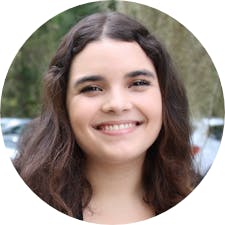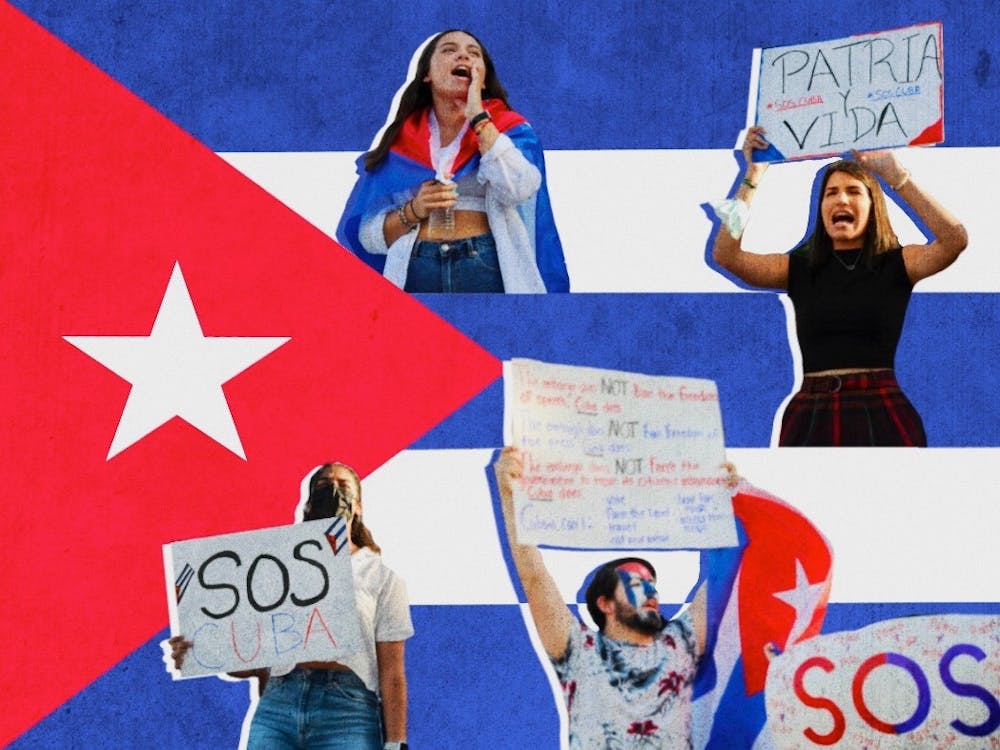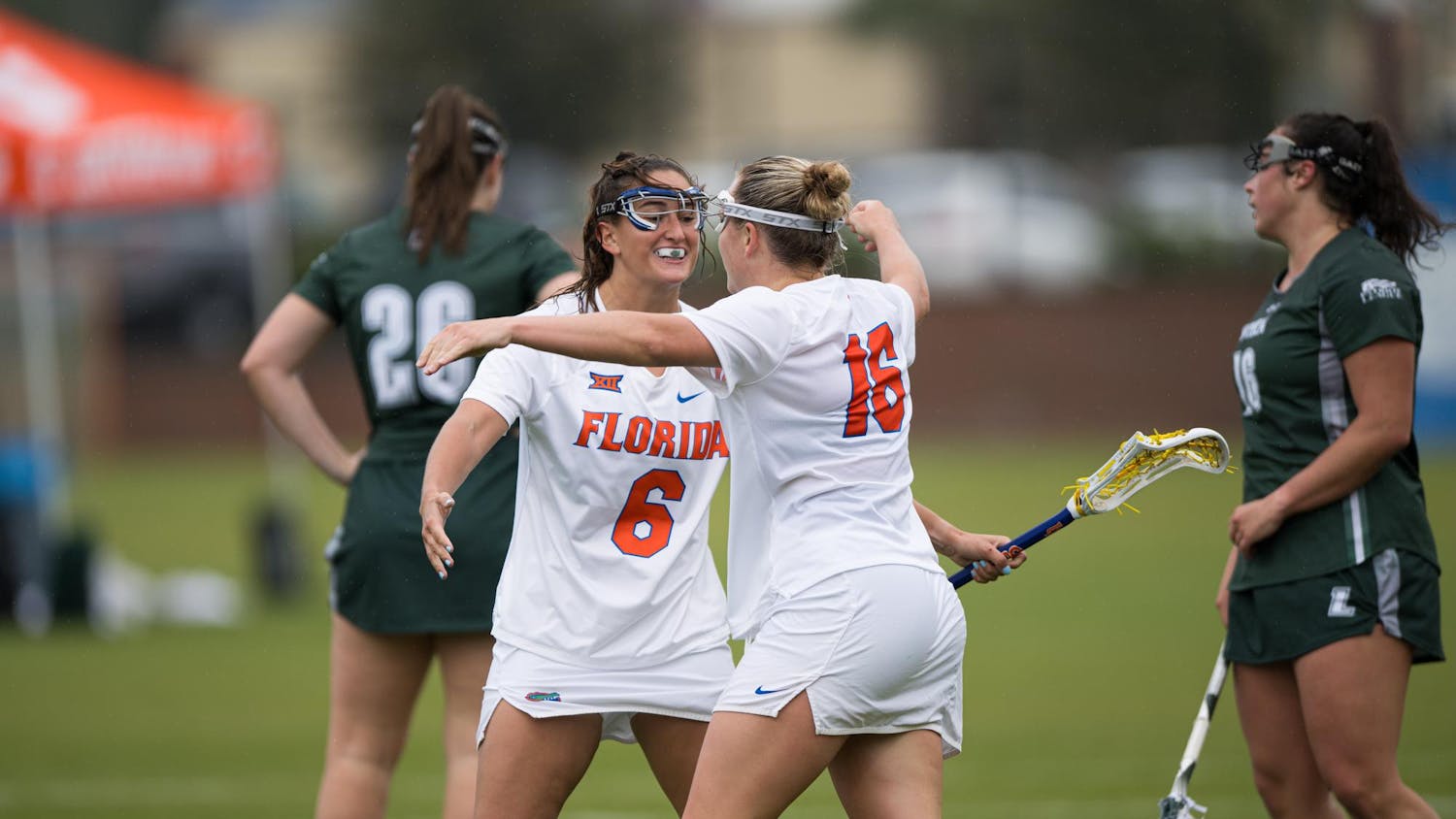Ninety miles from the land of the free exists an island shackled by its government.
Within an island home to more than 7,000 different species of flora and fauna, distinctive waterfalls and thin powdery white sand, its people live with little electricity and shortages in everything from grocery products to medicine.
On July 11, when protests began on the island for the first time since 1994, they weren’t marching for necessities. They had adapted to survive without them.
They were marching for freedom.
Through social media, Gainesville residents organized more than three protests during the summer. At the protests’ peak about 70 Cubans, second generation immigrants, students and residents attended.
Yet, the country has remained silent in terms of progress. Protests slowly dwindled since the summer. Gainesville residents and students continue to hold out hope that one day the island will change.
Despite the decline in protests in Gainesville, residents now look to social media to stay informed about political unrest in the country.
Throughout the summer, protestors in Cuba posted videos of the police brutally beating people marching peacefully. There were also videos of police entering homes and taking children to be questioned for possible participation in protests.
Now, seven months later, where do Cuba and its displaced people stand?
The Protest Organizers
Elio Piedra came to the United States from Cuba when he was 19 years old and launched Gainesville’s first Spanish-language radio station, Tu Fiesta Radio in 2021.
After spending a day on a boat with his two daughters July 11, the 30-year-old began receiving frantic texts and messages on Facebook.
Have you seen the news? Cuba is awake.
“I got a lump in my throat,” Piedra said in an interview translated from Spanish. “It was a mixture of emotions, like wow could this be the moment that Cuba will really be free.”
While Piedra felt incredibly hopeful, he also felt a twinge of guilt.
“It was a mixture of concern, pride, fear for the people who were there and at the same time, if I'm completely honest, I was even ashamed of myself,” he said.
He regretted not being able to march with the people in Cuba, not being one of the people that started the fight. Inspired by what he saw on social media, Piedra took action.
People in the community messaged him, asking where to meet and what to do. He made two posts, one in Spanish and one in English, on Facebook asking people to meet at Bo Diddley Plaza to march for Cuba.
In an hour and a half, Cubans and Latin Americans in the Gainesville community organized. If people in Cuba weren’t afraid to pick up sticks and defend themselves against armed police, how could he be?
“The Cuban government is the worst — they’re like a mafia, tyrants,” he said.
Piedra stressed the protests were for freedom and liberty. He said democracy doesn’t exist in Cuba.
“Cuba is a prison. It is an island surrounded by water where no one can leave unless they risk their lives swimming,” he said. “Hundreds of Cubans die every month trying to go to Nicaragua, trying to get here to Florida.”
Since the July protests, Piedra believes people are losing faith because Cubans keep dying. The opposition movement in Cuba tried to organize another protest Nov. 15; however, it was crushed by the government.
Piedra noticed that every protest after the first one on July 11 had a shrinking crowd. He attended a march in Gainesville in support of the November protest but said few attended.
“There is no way to mask it,” he said. “They are killing Cubans, either with sticks, with shots, disappearing them. Mothers are suffering because of that — they are just kids, possibly people your age.”
The only solution left for Cubans is to escape the prison that is Cuba, he said.
“We Cubans do not want to negotiate with the Cuban government. We do not want a dialogue. We do not want to discuss anything. We want them to leave,” Piedra said.
Piedra believes the Castros are at the root of the problem and that the system in Cuba is completely broken.
“In Cuba, they would tell us what we had to eat, how we had to dress, what we had to say. It was constant brainwashing. It was like a cult from the moment you were born,” he said.
He is thankful for the July protests. The world was finally able to see what Cuba was really like. In one way or another, it unified the Latin community.
Alexandra Quintana, a UF Spanish and political science senior, felt this unity when she organized a protest for Cuba on University Avenue and NW 13th St. on July 16.
She grew up hearing stories about Cuba from her parents and the Cuban community surrounding her in Miami. The 20-year-old’s parents fled their home country.
“Honestly, I wish I could protest with them on the island and that's why I wanted to protest here in Gainesville, knowing how many Cubans are here, how many people were from Latin American countries who also suffer from dictatorships,” she said.
Quintana organized the University Avenue protest through Take Action Florida, an organization she co-founded.
About 70 people participated in the protest; they waved decorated signs and chanted “Patria y Vida” ー “homeland and life.” It’s a play on “Patria o Muerte,” which translates to “homeland or death” and was often said by Fidel Castro during the communist revolution.
Quintana has kept up with what’s happening in Cuba now by following organizations that amplify any information released from people in Cuba.
Cuba is currently conducting trials on people who were caught protesting, some of them as young as 16. The government has also cracked down on social media posts and even shut down internet access across the country during the protests.
“If you're a citizen of Cuba or you're living on the island, any information that you have or videos or recordings that you try to release out into the internet, it's being surveyed and controlled, so that can be used as grounds for arrest,” Quintana said. “Being able to speak freely in Cuba is not a reality.”
Despite the harsh situation, the protests gave Quintana hope. She believes there is a brighter future ahead.
“I think that the moment people stop caring, stop sharing and stop lending their support and their love, that's giving up hope on something that is possible,” she said. “That's why we're all fighting for it.”
The UF Community
Kevin Trejos, the Hispanic Student Association president, was inspired when he saw people standing up for their values.
Many Cuban students reached out to the association via Instagram with questions about how to help and where to go for protests.
“HSA doesn't take a political stance on things so what we like to do is just take an approach of educating people,” Trejos, a UF master of science in management student, said.
The organization posted infographics and resource guides on its Instagram. Trejos looks to student leaders on campus who are knowledgeable about specific issues to guide him.
Daniel Badell, a former HSA chief of staff, was involved in HSA for three years. The 21-year-old UF political science and international studies junior came to the United States at six years old.
Badell’s family made multiple attempts to leave Cuba since the 1980s. In 2006, his mother got the chance. The Costa Rican Embassy called her and she was finally able to leave Cuba. From Costa Rica, she hopped on the back of a semi-truck that took her across Central America until they reached the border of the U.S.
They declared asylum and lived in Miami. Badell described Miami as Cuba but with freedom of speech and a stable economy.
“As I grew up, I think I didn't pay that much attention to how important that cultural identity was, though, until I came to UF,” he said. “I realized that I was obviously in a very different place. This wasn't a Miami bubble anymore and that was important to recognize because I had grown up in a place that my identity was never a question.”
When protests began in July, Badell felt very optimistic. He believes internet access and social media acted as a catalyst for the protests.
People who lived in Cuba their entire lives and only heard stories of the rest of the world from family members that had left, finally saw limitless skyscrapers and grocery stores filled with every product imaginable.
His generation grew up with a darker, more barren Cuba than the generations before, he said. This reality forced his generation to take action.
“They don't care anymore. People don't care what the repercussions are of being against the government,” he said. “A generation that’s going to be out there and that generation also has a lot of influence on their parents and the internet. There's nothing more revolutionary than that.”
Today, many of the leaders that ignited the first protests are in prison. Badell believes the opposition is still alive and fighting but struggling due to so many of their members being detained and killed.
“That's very much in line with what the current government has always done, they've always taken political prisoners, put them in jail, completely tortured them and fed them basically nothing to make them starve, and then they die,” he said.
Yet, Badell emphasized that the July protests were a vital step toward progress.
“It's going to be moments like what occurred last year, that are slowly going to start chipping away how people legitimize the regime, and people don't find it legitimate anymore. That's the biggest thing,” he said.
The question of “Where are we now?” does not exist to the Cuban people.
They adapt. They fight. They do what is necessary to survive.
Where they are now is with each other, regardless of the miles or oceans that may separate them.
Contact Melanie at mpena@alligator.org or follow her on Twitter at @MelanieBombino_.
This article was updated to reflect times that have changed since publication.

Melanie Peña is a second-year business and journalism major. When she's not designing a graphic or writing an article, she's probably making jewelry or exploring coffee shops in Gainesville.






